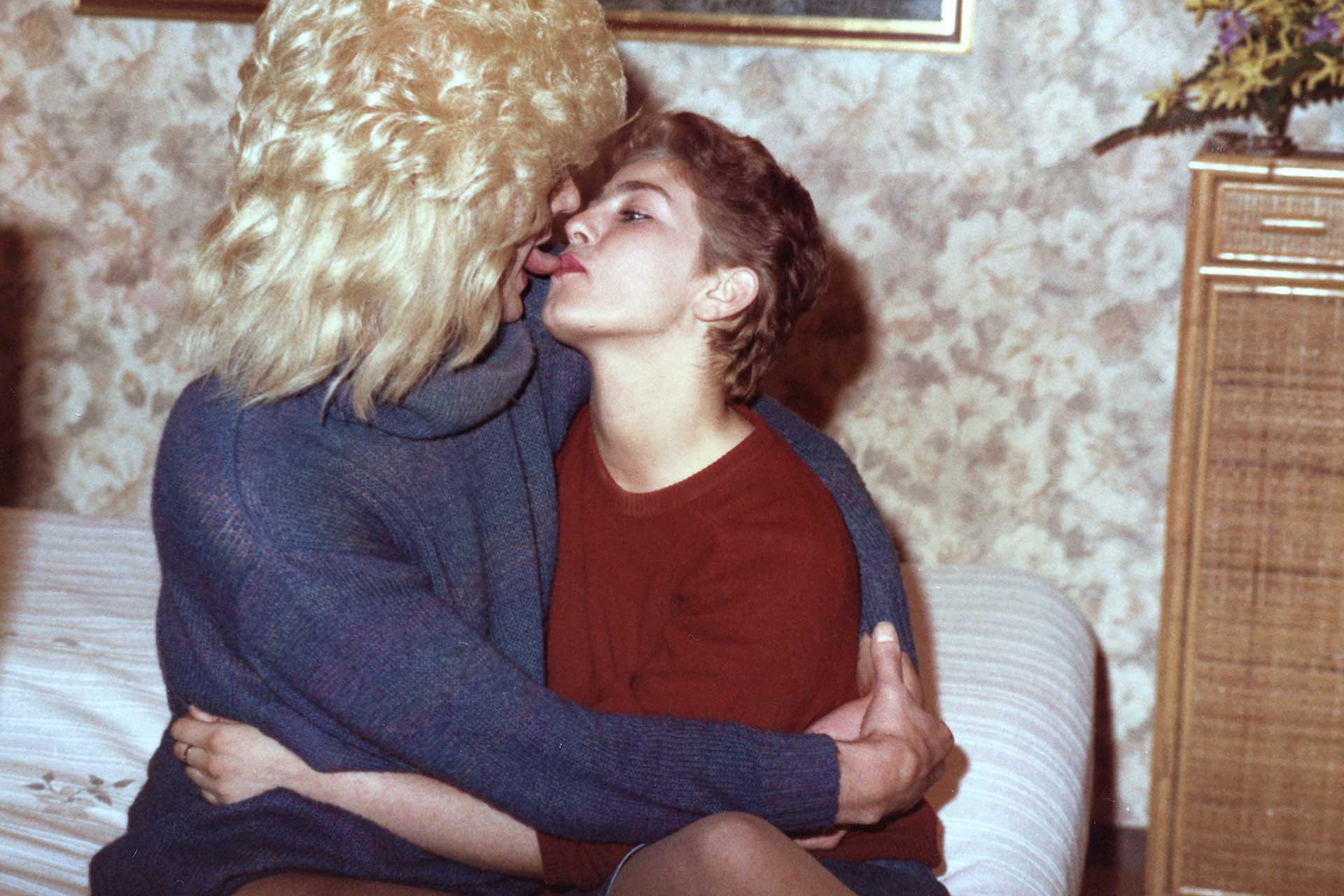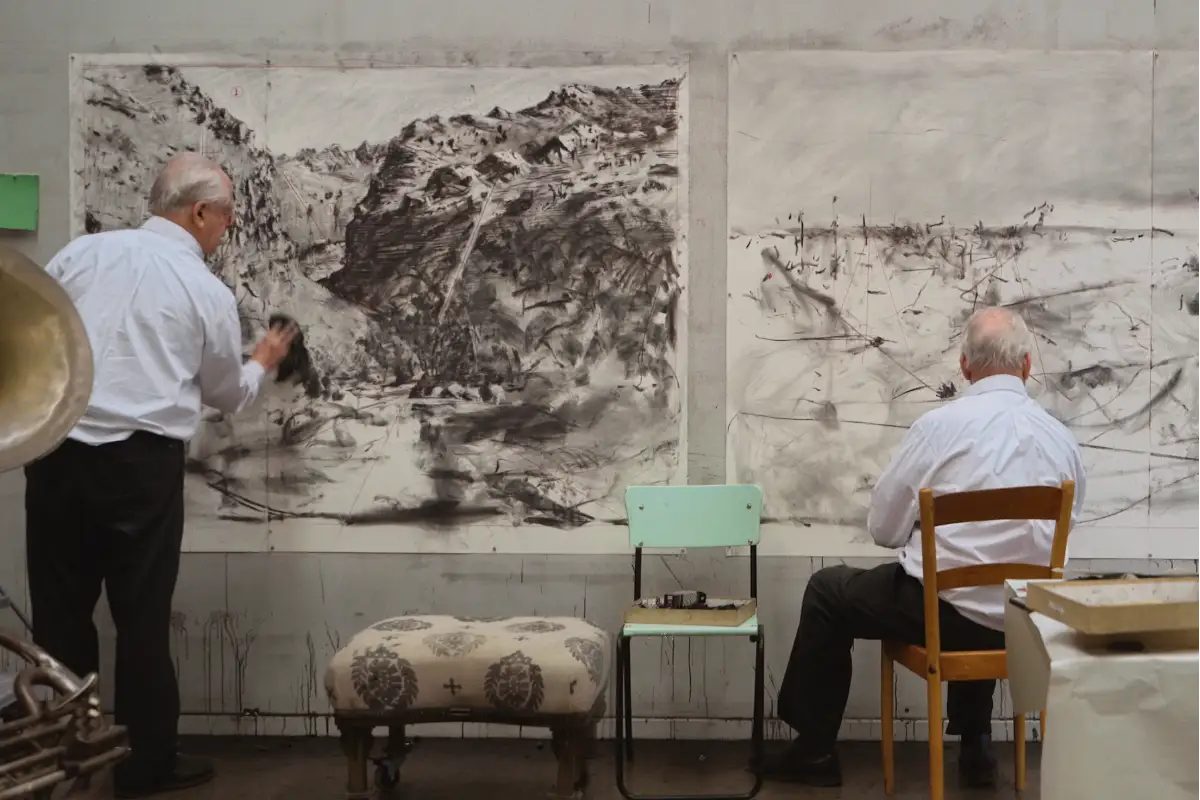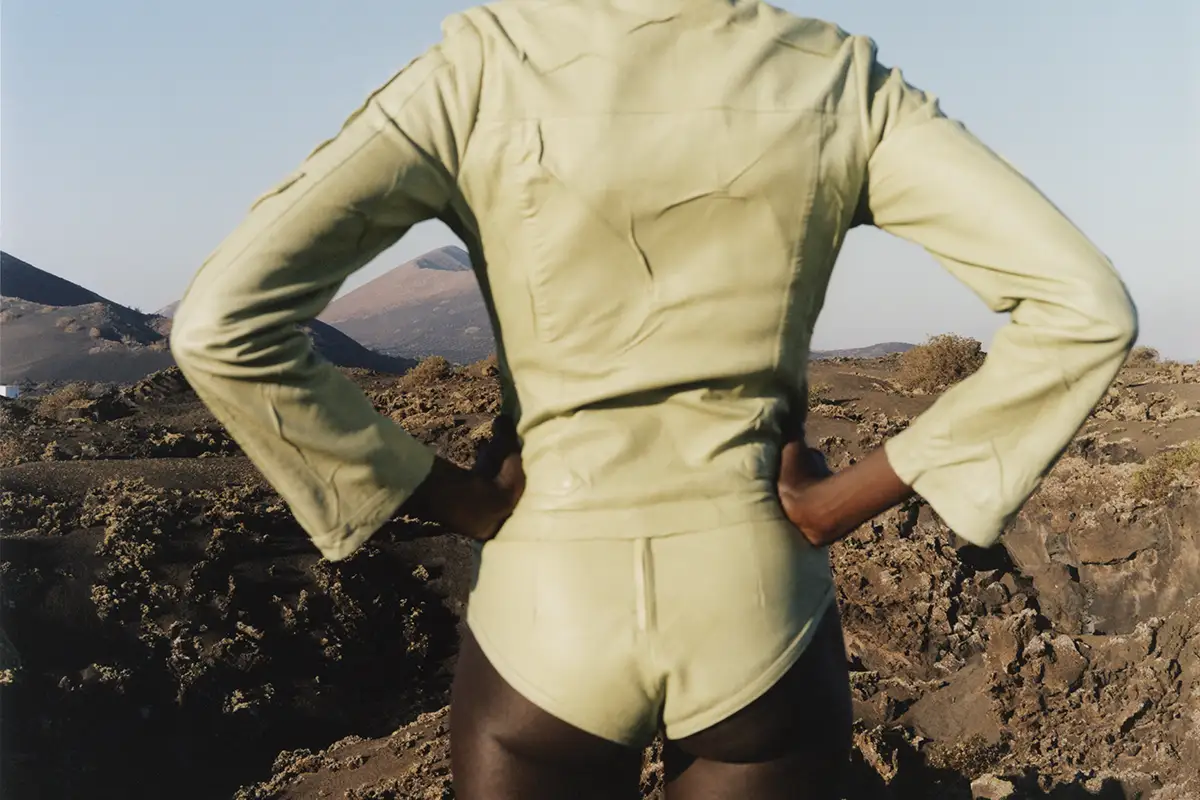Armando Borno recounts the Seventies «They would take you to the police station to redact a minute where they would describe how you were dressed and what kind of make-up you had on»
Crossdressing in Italy in the Seventies
I didn’t have my driving license, so I would go to Brescia from my small town by train or with my brother’s scooter. The first few times, I went to via dei Mille and via Italia dressed as a guy. That was a gay area, so there was no market for us crossdressers: gays didn’t want us. In the beginning I wouldn’t cross dress; then I met Lidia, who was seven years older than me, and I started secretly crossdressing with him, in his basement.
The first time I was seventeen. Lidia had beautiful eyes, which he would put half-moons, shadows and fake lashes on, but also a prominent nose and small imperfections which made the gender transition difficult. Once we won our reticence, we started streetwalking as crossdressers: we would go to the mirror bar at the train station or at our clients’ houses. We did our first client together: it was Don Cristoforo, a priest in town. He would take us on the bell tower, I remember you could see the ropes of the bells; it was us, him and the never-failing rue grappa magnum. In the end he would pay us 2,000 to 3,000 lire.
The first crossdressers in Brescia
The first wave of crossdressers who prostituted themselves in Brescia was already operative. Lea, Fabrizia and Lora had started working in 1966 in the Carmine neighborhood: those reckless men would go as far as streetwalking in piazza Loggia and also between piazza Loggia and piazza Vittoria, where not even prostitutes could go. Lea was marvelous, with long, blond hair like Patty Pravo, a wasp waist and feet like Cinderella. With the help of hormones, she had developed full and soft breasts, but above all she had a posture and a haughtiness that made us all envious.
She’d make the men walking by crazy. Prostitution wasn’t a crime: a woman could do it without any problem, but for a crossdresser it was more difficult, because one could be framed with the excuse of masking, of impersonation. The police were working with some accomplices who would pretend to be clients and go upstairs: the police would then intervene and the accomplice would say that he’d had no idea he was with a man and that he had been deceived. In one second you could get six months in prison for scamming the client. With this tactic at the beginning, they got all of them.
Recounting the public humiliation by the police
After the six months in jail, they had to endure three years of special surveillance, but that wasn’t a problem at the Carmine, where there already was a contest of micro criminality and prostitution which would protect them: they could still prostitute themselves in front of their houses and, when the police came, run upstairs. The problems started when, at the end of their sentence, they came up with another one to get rid of them: they would send them into confinement, like they did with criminals. When us younger ones came in, at the end of the Sixties, the most you could get was a fine and public humiliation.
They would take you to the police station, where they would keep you the whole night to redact a minute where they would describe exactly how you were dressed and what kind of make-up you had on: clothing, shoes, accessories, fake lashes, the color of your eyeshadow and of your lipstick. In the end you’d get an administrative fee for crossdressing which could range between 80,000 and 200,000 lire. There wasn’t a way to get away from the abuse of power.
About taking hormones and fucking cow’s lungs
If you saw the police and you were far enough, you could take off your heels and start running, hoping to be close enough to a door that you could lock yourself behind, but if they got you, there were no justifications. In those days, policemen were cruel terrorizors. At the time, Fabrizia, Lea and Lora hadn’t undergone surgery yet, but Lea had started taking hormones to grow her breasts: she had always wanted to become Eva, the name she used after the sexual rectification. Fabrizia had implants done. He’d take a cow’s lung, cut it and put it between his thighs, simulating the female sex. The poor clients were fucking a cow’s lung without even realizing it.
The Carmine neighborhood had always been full of prostitutes, via Borgondio was swarmed: every home housed a dozen of them, each had her room, and some were true slums, holes, brothels. The neighborhood was theirs and you had to be afraid while walking by, as a teenager I was scared myself. Crossdressers couldn’t and didn’t want to be in the same streets, not because they were scared, of course. The three of them could take care of themselves and prostitutes at the time were completely ignorant, they weren’t even able to speak Italian.
Five Vicolo Rossonera – The Dollhouse
There were many jokes over their mistakes. At the beginning Fabrizia had settled in Casa Vergine in via Borgondio, Lea still lived with her parents in vicolo Orientale and Lora was a free spirit. Soon they moved to five Vicolo Rossovera, which would become the Dollhouse. Having a fixed place to work and welcome clients was much more comfortable: all they had to do was stand outside the front door and wait. Working in the bedroom allowed you to ask for more money. Word of mouth had instantly created a movement and with the arrival of our second generation, the whole building was occupied by crossdressers.
The Dollhouse in Brescia
The Dollhouse was a slum of five crumbling storeys, with constant ruins and water seepages. To us it was fine because the rent was low, between 20,000 to 50,000 lire for the more spacious rooms. In its full house days, there were around twenty of us living there. On the first floor there was Medea, a shop assistant. A crossdresser in the true sense of the word: there wasn’t anything feminine about him, except for a gentleness typical of housewives and the inclination to cook for the guys who he sometimes picked as his partners.
At first glance he could seem disturbing: huge shoulders, the stocky calves of a cyclist, weird eyeliner wings with theatrical backcombs, scary fake lashes, Moira Orfei like make-up and a voice which wasn’t that of a soprano. He was good in bed, so he had a lot of clients. The second floor was the prerogative of the prostitutes, like Mary, the tiny, former whore of Bovengo, who was 1.40 meters tall, Maria Milanese, and Isi, a beautiful woman who looked like Marilyn Monroe. Mohamed Giulia’s – Mohamed was her pimp (often one would address prostitutes by their pimp’s name).
The life in the house with the clients
They could take their customers to their rooms, but couldn’t work down the alley. I was on the fourth floor with Tiria and Barbara, on the fifth there were Giuliana, Luisa Castellana – she slit her throat with a blade – and Lidia, who was the luckiest one with her two-room apartment and 360-degree panoramic views, from the castle to the San Giovanni church, only one step away from the sky. There were no kitchens: we would lunch near the house for 2,000 lire and for dinner we would dine in the finest restaurants, money wasn’t a problem for us. There were bathrooms on each floor, so shared by three apartments, and no showers. When we had to shower, we’d go to the public wash houses in piazza Mercato.
Music would cut across the single apartments and because of this you couldn’t say we were independent: if I wanted to listen to Mina, Barbara would have to adjust. The hi-fi systems were the best on the market. Marina had a quadraphonic system which would move your diaphragm. My set was made of a stereo system, an equalizer and a cassette deck with two compartments. Everything was connected to the speaker through radio wired broadcasting, which was all the rage at the time: microphones, musical instruments, recorders and a last generation pick up which would cut through the vinyls. We would listen to every kind of music, from Alice Cooper to Patty Smith, from David Bowie to the Rolling
Stones, but mainly Italian singers: Mia Martini, Patty Pravo, Gabriella Ferri, Vanoni and Alice. I moved in at the beginning of the Seventies. We all knew one another, and we were somewhat friends, but there were rules to follow. Our second generation moved into the building while the first ones were under special surveillance, so they worked downstairs and took their clients upstairs out of necessity, because they couldn’t go too far. We couldn’t do the same since we’d have ended up stealing their clients and we hadn’t the seniority to do that: the market was theirs, no discussions.
Growing up with a religious upbringing
To gain the right to work near the Dollhouse you had to work your way up the ladder and have the cunningness to seize the location at the right time. They all started working near the house when the older ones were on vacation. I have five sisters and a brother, I’m the youngest. My parents were farmers and wealthy landowners, one of the most outstanding families in Bedizzole. They were your typical model family, who went along with the archpriest and the Monsignor, with all the advantages that came along that: bequests, presents, I’ll build for you the sports center if you gift me the piece of land next to the Church.
The village’s parish priest was always at our house for dinner, but he wasn’t the only one. I remember this funny Monsignor who, between courses, would get up and start jumping repeatedly, stocky and clumsy as he was, in order to allow the food he had just eaten to go down and make room for more. My mom was an excellent cook, the daughter of chefs. Given the success they’d had with clergymen, they decided to open a restaurant in our estate. We grew up with a religious upbringing: praying every hour, from morning until the 2 p.m. function, to the vespers. I still carry with me a bit of that rigor. A family of strong moral values, who couldn’t even phantom going astray. Instead I was born.
Lampoon reporting: military service dressed as a woman
At nineteen I showed up for military service dressed as a woman, so they would reform me. There was a lot of snow and I was wearing a brown fox fur collar with an oversized camel coat that touched the floor: they were fashionable at the time. Where are you going? they asked, astonished. You have called me, this is my card. They were shocked, they put me in an open truck and took me to the barracks. In the courtyard there were hundreds of young soldiers: when I entered, there was the parting of the Red Sea, the two wings opened up and I walked between them, alone, with a gorgeous fox fur collar, short blonde, almost white, hair, with make-up on.
The corporal had taken me there thinking he would rehabilitate me. They soon realized that my presence at the barracks could cause disarray: I was in a room with all the soldiers who had just been recruited. I found myself on my cot surrounded by 100 of them observing me: they were curious, they wanted to get to know me. Chaos was about to break out, so they put me in isolation. After three days they took me to the military hospital, where I was seen by a psychologist to reform me and sent me back home.
At the beginning of the Eighties – I had already moved out of the Dollhouse and into the apartment where I currently live – I met Daniela, the daughter of a woman from the Carmine neighborhood who had left her with a woman from Pezzaze because she didn’t want to raise her. She never met her father and her sister lived in the neighborhood too. When at eighteen she decided to leave the adoptive family and go back to the Carmine neighborhood, she already knew the right people. I was thirteen years older than her and I regularly worked near the house.
A savage sexual force which unsettles
Daniela, a lesbian, met me in my working clothes, crossdressed as a woman, and fell in love with me. Around the same time, she met me dressed as a man at the Clemens bar, and she fell in love with that other handsome guy. She fell simultaneously in love with Armando and Armanda, without imagining they were the same person. I had already had some relationships with women before her, there were many who wanted me. Mariapaola from Bagnolo wanted to make love to me at all costs even though I didn’t work that way and I couldn’t satisfy her. Daniela was a gorgeous girl, very thin with blue eyes and size six breasts.
She was in love, she wanted me at all costs, she would come and look for me at the bar, she would come and look for me in the evening while I worked. I let her crash at my place one night when she didn’t know where to sleep. In the morning we woke up holding hands and that’s when our relationship began. I gave in, I tried my luck, I told myself let’s see if it works out. I wanted to retire from the scene, stop prostituting myself and at the same time redeem myself with my parents and myself. She moved in with me and we lived together for a year and a half. Although she was a lesbian she really liked me physically, and she had a savage sexual force which unsettled me.
The marriage
We got married on 24th August 1985. My parents were enthusiastic, I couldn’t have given them a better gift: I was the prodigal son who had found his way back home, and redeemed himself with a girl on his arm. My dad paid for and prepared the wedding himself. I left the streets and started working as a waiter with Daniela. I was sure of my deci- sion, I had taken the whole thing seriously. It was a good period even though work was exhausting. After a year Daniela got tired, she had some problems with her adoptive family, she didn’t want to make love to me anymore.
She was psychologically unstable, she didn’t want to work anymore, she felt confined and she had become friends with a lesbian from Valtrompia. A series of reasons which led her to fall out of love with me and to clearly show it to me. I couldn’t keep living with her parents so I left her viciously and went back to the Carmine neighborhood. I went back to prostituting myself tenaciously, with a commitment to earn money and to be fulfilled. Up until then I had earned money but hadn’t saved up much. From that moment onward, after having experienced firsthand what struggle, hustle and hard work felt like, I reluctantly came back to the scene. There was always a lot of work and I was in my prime years: I could make money even without trying.
Lei, Armando
The text is an extract of Nicola Baroni’s book-interview with Armando Borno, Lei, Armando (Morellini editore).




















